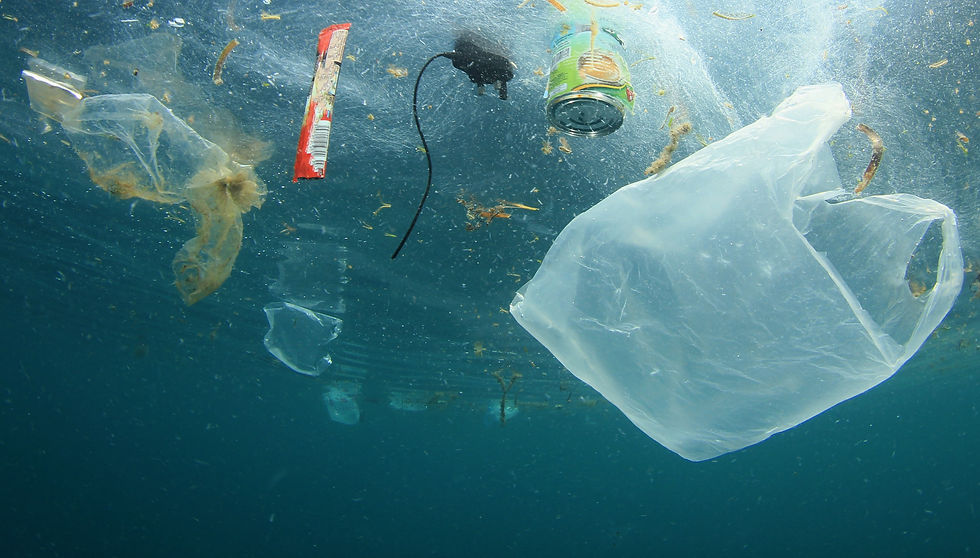Would you eat your credit card? You might have already...
- ZQ Natural Fibre

- Sep 23, 2020
- 2 min read
Updated: Aug 13, 2021

Throw back to when you were a kid, playing 'house' with your friends. You'd sit down to a meal that your lil' brother so lovingly prepared for you and pretend to eat your plastic tomatoes, plastic bread and a plastic hotdog (hey, it was the 80's, plastic was where it's at...).
Now as adults, we don't have to pretend anymore - real food has plastic in it. And a new study shows plastic is now accumulating in our organs...
Now, surely this isn't a good thing?!
Unfortunately it's too soon to know the affects yet, however, remembering we're a part of nature and seeing what plastic is doing to other natural wildlife, it's probably something we want to avoid.
Research from the University of Newcastle, Australia, commissioned by the World Wildlife Fund, found that we are ingesting 5 grams of plastic each week, either via our food or water. And this goes for your beer, bottled and tap water, sea salt, seafood, fruit, vegetables, you name it. Bon appétit!
Now, more than ever, there is urgent need to address the plastic system so that it doesn't pollute our ecosystems in the first place.

So what can you do?
It can be overwhelming when you think about the global problem on the macro, so let's take it back to the micro - what you can do today. One small step at a time, thinking globally but acting locally will create great change in the long run.
We can choose to live a more natural life...
- Choose to wear natural fibres that don't pollute our waterways or landfills. Natural fibres, like merino wool, will biodegrade over a short amount of time. This is better than just breaking down into smaller, microplastics, like synthetic fibres do (think polyester or acrylic).
Check out these conscious brands who choose to use natural, sustainable materials, like ZQ wool. And if your favourite brands aren't up to par, ask them to change. Your feedback is gold.
- Choose to reduce the plastic in your life. Maybe it's bringing your own sushi takeaway box, or selecting unpackaged fruit and vegetables on your grocery shop. Check out this article for how we've made some swaps and found better alternatives.
- Choose to surround yourself with natural fibres and materials in your home or office. This could be incorporating wool, bamboo, hemp and linen - check out this article to make a start.
And maybe swap out your kids plastic vegetable toys for some natural toys...
Written by Rhiannon James







